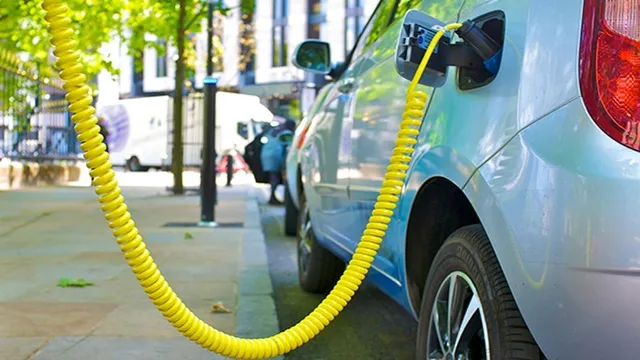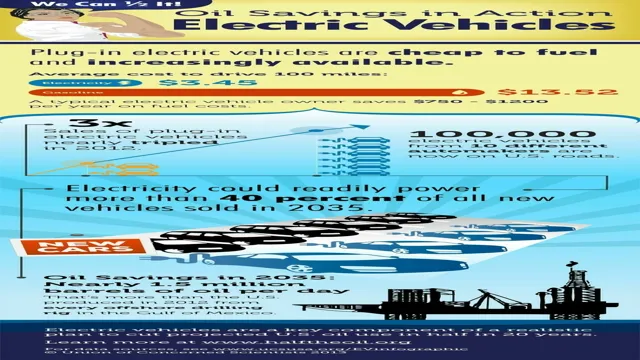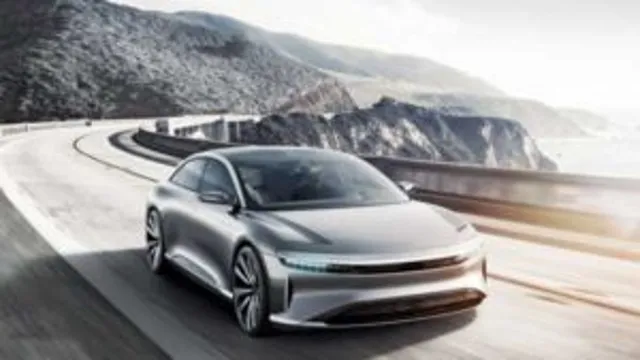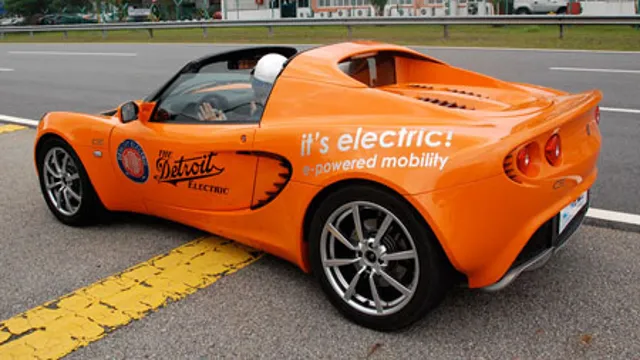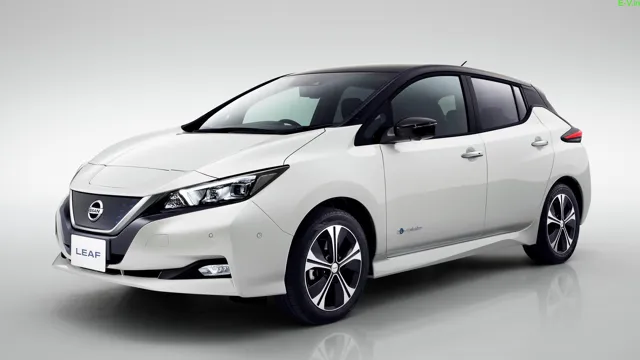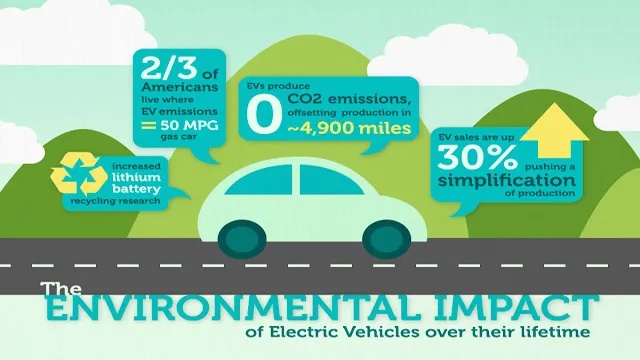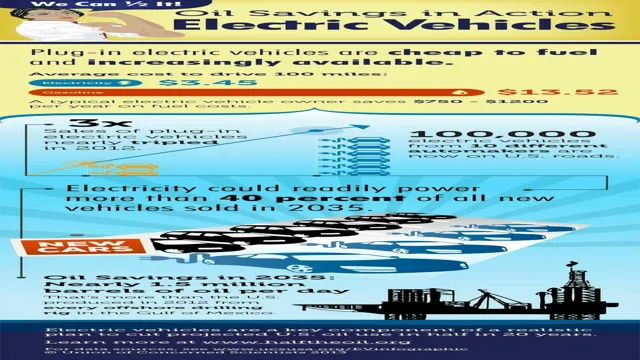Electric Cars: A Win-Win Situation for Utilities and Consumers?
As our world progresses towards more eco-friendly and sustainable practices, electric cars have been at the forefront of this change. In fact, electric cars have been taking the world by storm for the past few years and it’s not hard to see why. From their low carbon footprint to their fuel efficiency, electric cars have brought about a major shift in the automotive industry.
But what about the utilities sector? Have they been able to take advantage of this technology shift as well? The answer is an astounding yes. The widespread adoption of electric cars has paved the way for utilities to tap into a whole new market that could potentially revolutionize the industry. By integrating electric cars into their systems, utilities can provide a range of services such as charging infrastructure, energy management, and battery storage.
This not only makes electric cars more accessible and convenient for consumers, but it also creates a lucrative business opportunity for utilities. Not only that, but utilities can also benefit from the increased demand for electricity that electric cars bring. This could help to balance the grid, stabilize prices, and reduce reliance on fossil fuels.
It’s a win-win situation for both sectors! In conclusion, electric cars and utilities can indeed work hand-in-hand to create a cleaner, more sustainable future. By collaborating and embracing the shift towards electric vehicles, they can improve the lives of consumers and the planet as a whole.
Growing Popularity of Electric Cars
The growing popularity of electric cars has the potential to benefit utilities in a number of ways. Not only does increased adoption of electric vehicles provide the opportunity for utilities to sell more electricity, but it could also help to balance the load on the electrical grid. With the right infrastructure in place, electric vehicles could be used as a type of distributed energy resource, allowing utilities to store excess energy and use it to meet peak demand.
Additionally, utilities could work with customers to optimize charging times to reduce demand during periods of high usage. Overall, while there are still challenges to be addressed in terms of infrastructure and regulation, utilities are well positioned to benefit from the growth of electric cars, creating a win-win situation for both providers and customers.
Rising Sales of Electric Cars Worldwide
The sales of electric cars have been steadily increasing worldwide, and it’s no wonder why. As people become more environmentally conscious, they are looking for ways to reduce their carbon footprint. One of the most significant ways to do this is by opting for electric cars instead of traditional gas-powered vehicles.
Not only are electric cars better for the environment, but they also have other benefits such as reduced fuel costs, lower maintenance costs, and many are eligible for tax credits. It’s no wonder that the market for electric cars is growing rapidly, with major automakers like Tesla, Nissan, and Chevrolet leading the way. In fact, according to a report, the electric vehicle market is projected to grow by a compound annual growth rate of 2
4% over the next decade. With the rising popularity of electric cars, it’s clear that we are moving towards a cleaner, more sustainable future.
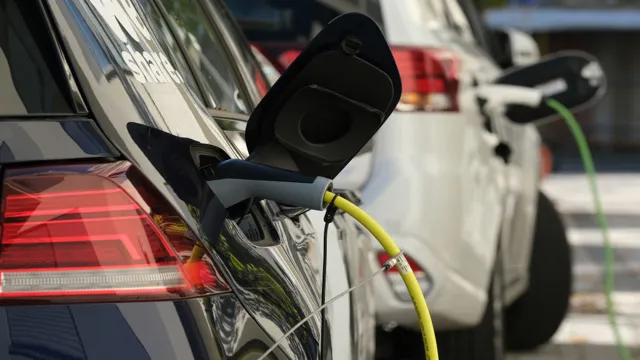
Government Incentives Driving Adoption
The government incentives driving the adoption of electric cars are making them increasingly popular among consumers. As more people become aware of the incentives available for purchasing an electric car, the demand for them continues to rise. Governments around the world are offering incentives such as tax credits, rebates, and grants to encourage drivers to make the switch to electric cars.
These incentives are helping to reduce the cost of electric cars, making them more affordable for consumers. Additionally, incentives are also being offered to companies to install charging stations, which is helping to address the issue of range anxiety that many people have when considering purchasing an electric car. As a result, the popularity of electric cars is on the rise, and it is becoming more common to see them on the roads.
This is a positive development, as electric cars are not only good for the environment but can also save consumers money in the long run with lower fuel costs and reduced maintenance.
Benefits of Electric Cars Over Gasoline Cars
As people become more environmentally conscious, electric cars are becoming increasingly popular. Electric cars use electricity stored in batteries to power an electric motor instead of using gasoline. One of the primary benefits of electric cars is their lower impact on the environment as they emit no harmful gases or pollutants.
Additionally, electric cars offer lower operating costs since electricity is cheaper than gasoline. Moreover, they are quieter than gasoline cars and provide a smoother driving experience. However, there are still some limitations to electric cars such as limited driving range and the need for access to charging stations.
Nonetheless, with the advent of modern technology, more charging stations are being introduced, and high-capacity batteries are being developed, making electric cars a viable option for more people.
Impact of Electric Cars on Utilities
With the increase in popularity of electric cars, utilities stand to benefit greatly. As more and more people switch to electric vehicles, the demand for renewable energy sources will increase, leading to a shift toward cleaner and more sustainable forms of energy production. This shift will require utilities to invest in new infrastructure, such as charging stations and grid upgrades, creating a significant economic opportunity for the industry.
Additionally, the increased use of electric cars will lead to greater energy efficiency and reduced emissions, both of which will help utilities meet their environmental goals. Ultimately, the growth of the electric car market represents a win-win scenario for both consumers and utilities, as it offers a cost-effective and environmentally friendly alternative to traditional gasoline-powered vehicles while also providing a significant boost to the renewable energy industry. So, will utilities benefit from electric cars? Absolutely – and so will the environment.
Increased Electricity Demand
Electric cars are on the rise, and while they offer a lot of benefits like cleaner air and lower emissions, they also bring an increase in electricity demand. This means that utilities need to prepare for an influx of electric vehicles and the impact they will have on the power grid. Electric cars will not only need charging stations, but they will also require a considerable amount of power to charge.
This could lead to a strain on the power grid, especially during peak charging times. To avoid overloading the grid, utilities need to adjust their infrastructure and ensure that they have a reliable and robust system in place. Additionally, electric cars may also impact pricing for electricity, as utilities may need to adjust rates to account for increased demand.
While the rise of electric cars has its challenges, it is ultimately a positive step towards a more sustainable future. By embracing this technology, we can reduce our reliance on fossil fuels and create a cleaner and more efficient energy system.
Opportunities for Renewable Energy Sources
With the rise of electric cars, there is an enormous opportunity for renewable energy sources to meet the increased demand for electricity. As more and more people switch to electric vehicles, the traditional power grid will need to be updated to handle the new load. This means that utilities will need to find innovative ways to generate and distribute electricity from renewable sources such as wind and solar power.
The switch to electric cars will also have an impact on the way utilities manage their grid system. They will need to be able to handle the increase in demand during peak charging times, which will require new infrastructure and technology. The good news is that renewable energy sources are becoming more affordable and accessible, making the transition to a more sustainable energy system more achievable than ever before.
With the right investments in renewable energy technology, utilities can help to reduce emissions, improve air quality, and preserve the environment for future generations.
Challenges in Grid Management
Electric cars are undoubtedly a game-changer in the transportation world, providing an eco-friendly and cost-effective alternative to conventional cars. However, from a utilities standpoint, the influx of electric vehicles (EVs) could potentially cause some challenges in grid management. The massive uptake of EVs could surge demands on the electricity grid, which, without appropriate planning, could strain and even overload the system.
Energy companies need to be proactive and assess the potential effects that widespread EV consumption may have on the grid capacity and distribution networks. They should consider implementing smart grid technology, such as dynamic pricing and vehicle-to-grid (V2G) systems to balance energy distribution and prevent possible outages. The rapid growth of electric vehicles will require a balancing act to keep the grid working as seamlessly as possible.
However, if handled correctly, the widespread adoption of EVs could pave the way for considerable benefits in terms of reduced emissions and a more sustainable future.
Collaboration between Electric Car and Utility Industries
Electric vehicles are becoming more popular every day and the utility industry is beginning to recognize the benefits that these cars can provide for them. While the adoption of EVs may lead to increased demand for electricity, the integration of EVs into the grid has the potential to help utilities manage peak loads and to incorporate more renewable energy sources. Smart charging systems and vehicle to grid (V2G) technology can allow EV owners to charge their vehicles during periods of low demand and discharge stored energy during times of high demand, ultimately benefiting both the grid and the EV owner.
Furthermore, utilities can partner with EV manufacturers to offer customers incentives for EV adoption and the installation of charging infrastructure, leading to a win-win situation for both industries. Overall, the collaboration between the electric car and utility industries is mutually beneficial, and as EV adoption increases, the opportunities for collaboration will only continue to grow.
V2G Technology and Its Potential
V2G technology, electric car, utility industries, collaboration V2G or vehicle-to-grid technology is a potential game-changer for both the electric car and utility industries. What V2G technology does is allow electric car batteries to function as power storage systems for the grid. With the increasing occurrence of renewable energy sources, such as wind and solar power, the need for a reliable and flexible grid infrastructure is essential.
V2G technology offers a solution to this challenge by allowing the grid to tap into the collective power of electric car batteries, not only when they are being charged, but also when they are not in use. With a V2G-enabled electric vehicle, drivers can sell their stored energy back to the grid during times of peak demand, thus increasing grid stability while also lowering energy costs for the consumer. The collaboration between the electric car and utility industries on V2G technology has the potential to revolutionize our approach to energy consumption by creating a more efficient, sustainable and affordable future.
Joint Investment in Charging Infrastructure
Electric vehicle (EV) ownership has been rising in popularity over the last few years, with more people opting for sustainable transportation solutions. As a result, the need for adequate charging infrastructure has become a pressing issue. To address this issue, the electric car and utility industries are collaborating to make joint investments in charging infrastructure.
By doing so, they hope to increase access to charging stations and promote EV adoption. Through this collaboration, the EV industry can leverage the utility industry’s expertise in managing power grids and providing reliable energy sources. In turn, the utility industry can benefit from the increasing demand for electricity that comes with EV charging.
The joint investment allows for shared costs and resources, ensuring a more efficient and effective use of funds. This collaboration can also have a positive impact on the environment. Increased adoption of EVs and the corresponding charging infrastructure can contribute to reducing greenhouse gas emissions from the transportation sector.
Additionally, the growth of the EV industry can create job opportunities and economic growth. In conclusion, collaboration between the electric car and utility industries is a promising approach to addressing the challenges faced in developing adequate charging infrastructure. With these joint investments, they can increase access to charging stations, promote EV adoption, and contribute to sustainable transportation solutions.
Conclusion: Positive Outlook for Utilities
In conclusion, the rise of electric cars brings a bright future for utilities. Not only do electric cars bring a new market for energy consumption, but they also offer an opportunity for utilities to intelligently manage the grid through vehicle-to-grid technology. By tapping into the battery power of electric cars during peak demand periods, utilities can balance supply and demand, reduce costs, and lower greenhouse gas emissions.
So let’s charge up our electric cars and power up our utilities for a sustainable future!”
FAQs
How will electric cars affect the demand for utilities?
As more people switch to electric cars, the demand for utilities such as electricity and charging stations is expected to increase.
Will utilities profit from the adoption of electric cars?
Yes, utilities could potentially profit from the adoption of electric cars as they would be able to offer charging plans and compete with gas stations.
How will electric cars impact the cost of utilities?
The cost of utilities may increase as the demand for electricity and charging stations will increase with the adoption of electric cars.
What role will utilities play in the development of electric car charging infrastructure?
Utilities will play a crucial role in the development of electric car charging infrastructure by investing in charging stations and promoting the adoption of electric cars.

